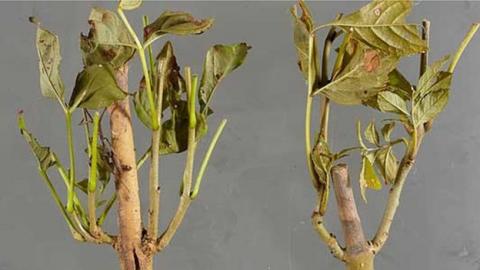
By Mark Kinver, BBC News
The genome of the common ash (Fraxinus excelsior) has been sequenced for the first time - an important step in the battle against ash dieback disease.
Researchers, writing in Nature, found UK ash trees seemed to have more tolerance than Danish trees, which were devastated by the fungal pathogen. The disease reached the UK's wider environment in October 2012. However, the scientists warned that the species faced another serious threat - the emerald ash borer insect.
"We sequenced an ash genome for the first time and... compared it to other plant genomes and we found that a quarter of the genes were unique," explained co-author Richard Buggs from the School of Biological and Chemical Sciences at the Queen Mary University of London. "This really underlined why we needed to do the project, because there is so much of the ash that seems to be unique to the [species]."
Dr Buggs, the head of plant health at Royal Botanical Gardens Kew, told BBC News that fellow members of the team from the University of York used the data to compare UK specimens with ones from Denmark, where the disease had been present for two decades and had decimated the country's population of ash trees. "[They] found evidence that ash trees in the UK could harbour lower levels of susceptibility to ash dieback than trees in Denmark," he said.

